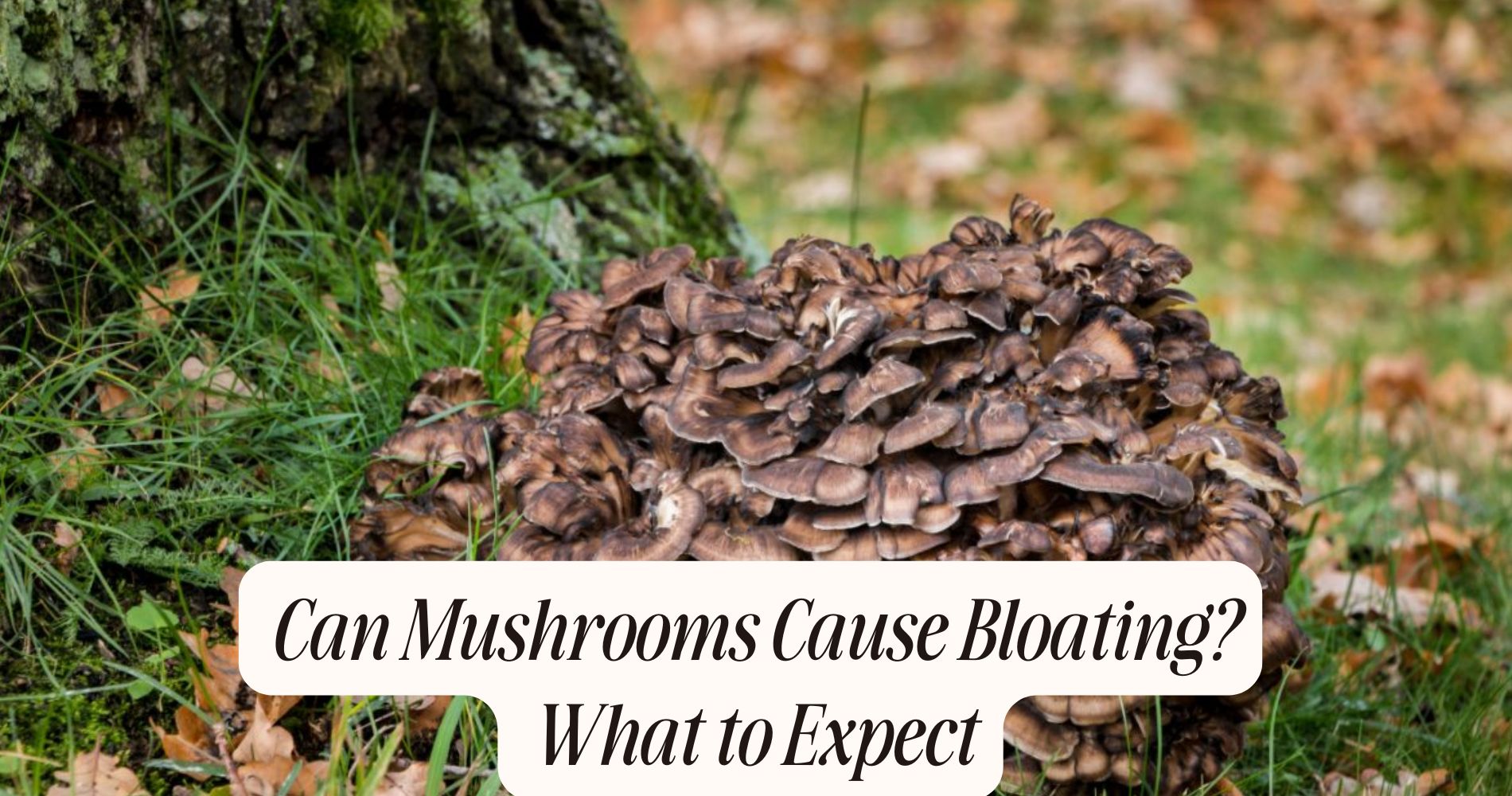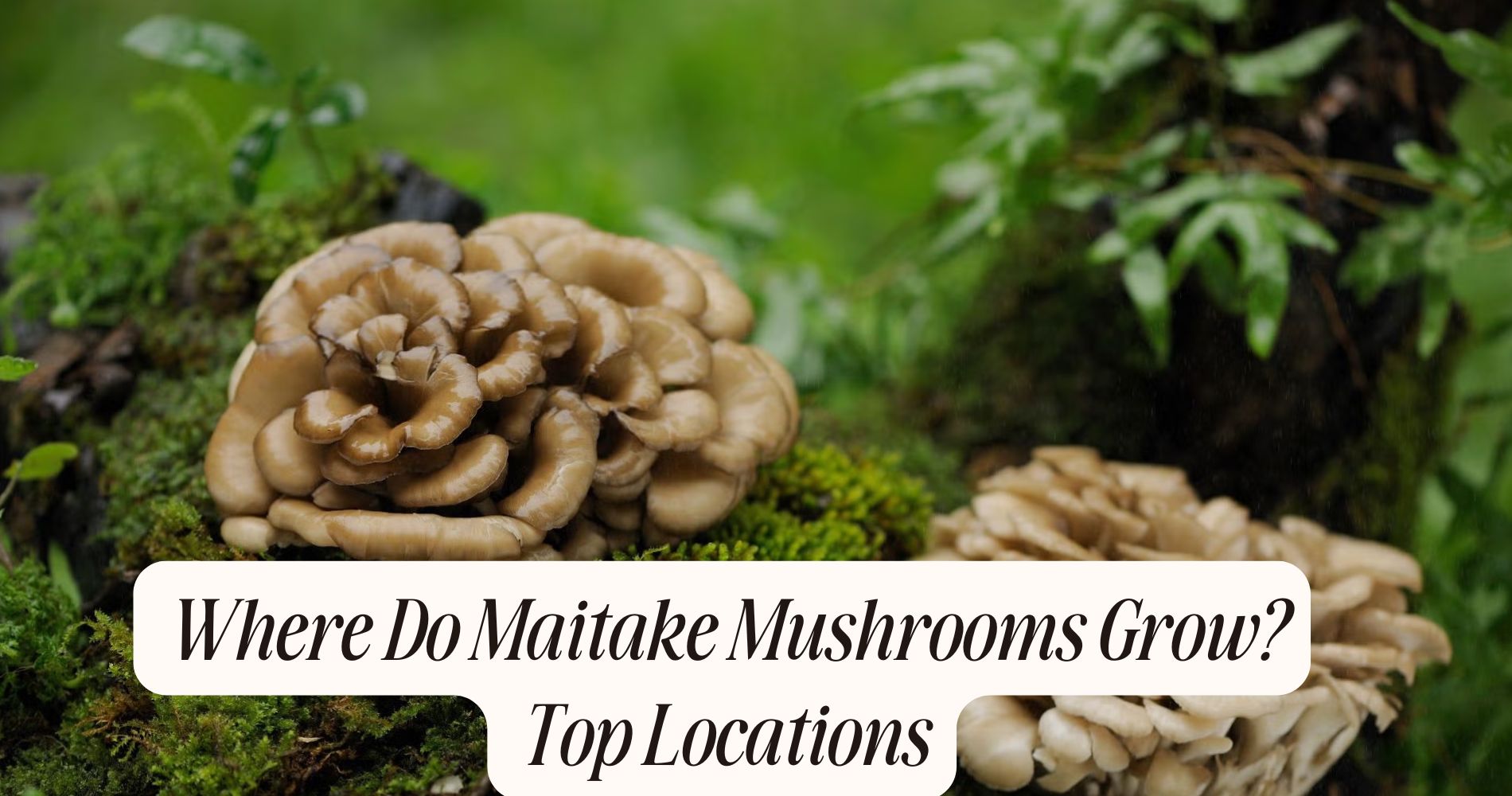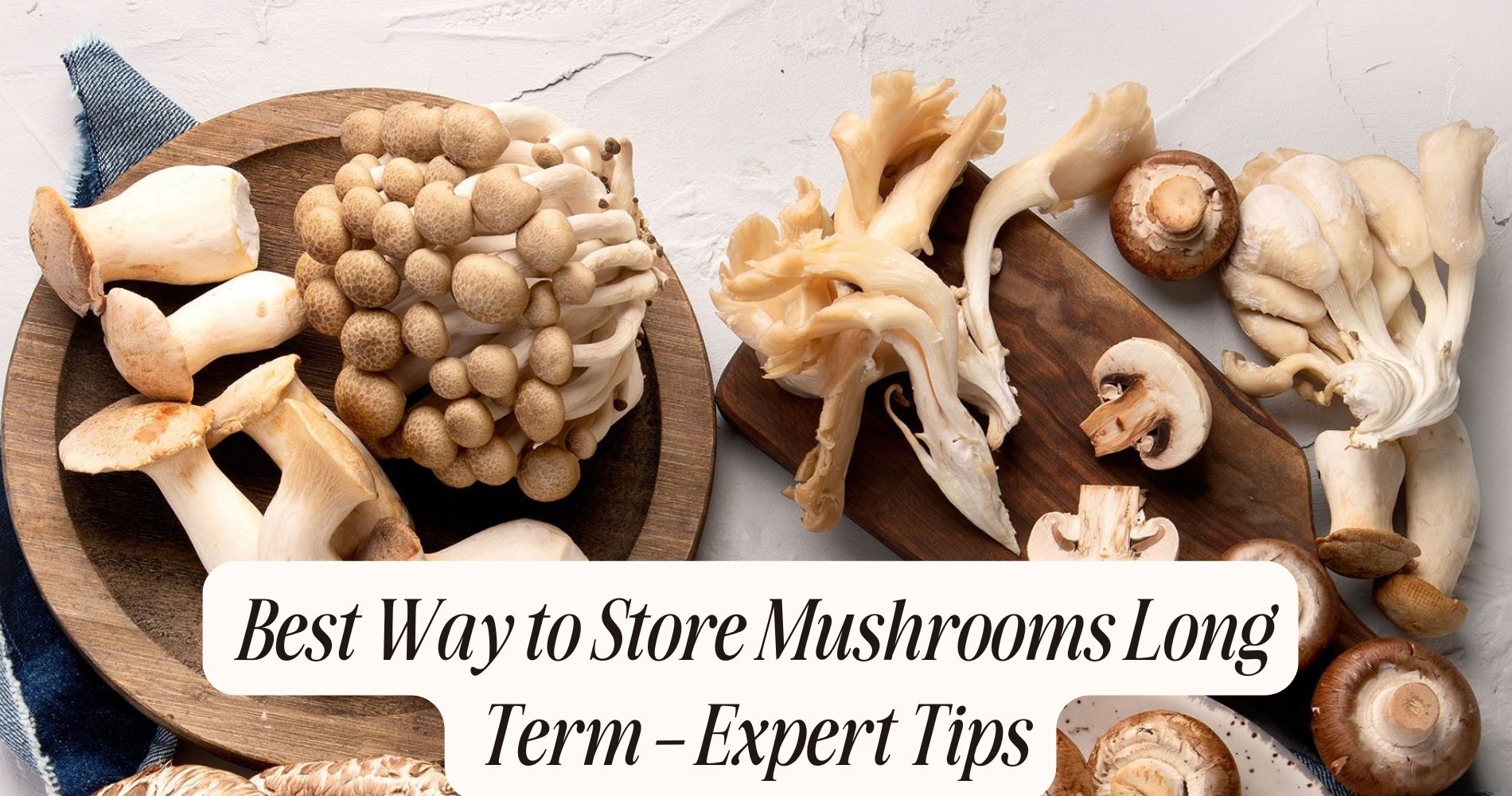
Can Mushrooms Cause Bloating? What to Expect
Can mushrooms cause bloating? Yes, mushrooms can cause bloating for some people. Your body can’t fully break down their unique fibers and chitin, so gut bacteria ferment these, producing gas. You might feel more discomfort if you eat mushrooms raw or have a sensitive digestive system, like IBS. Cooking helps make them easier to digest, and starting with small portions may reduce symptoms. There’s more to know about how mushrooms affect digestion and who’s most likely to experience issues.
Understanding Mushroom Nutrition and Digestibility
Although mushrooms are celebrated for their nutritional benefits, understanding how your body digests them is key to enjoying them comfortably. Mushrooms are packed with fiber, which supports digestive health by promoting regular bowel movements. However, their fiber content can also be challenging for some people, especially if your gut isn’t used to high-fiber foods.
Unlike many vegetables, mushrooms contain unique types of fiber and complex carbohydrates. Your body doesn’t produce the specific mushroom enzymes needed to fully break down these fibers during digestion. Instead, your gut bacteria take on this job, fermenting the fibers and sometimes producing gas as a byproduct.
To minimize discomfort, consider gradually increasing your mushroom intake, allowing your digestive system and its bacteria to adapt to the higher fiber content.
Common Compounds in Mushrooms Linked to Bloating
When you eat mushrooms, certain naturally occurring compounds can contribute to bloating and gas, particularly if you’re sensitive to them. Two main culprits are beta glucans and chitin content.
Beta glucans are a type of soluble fiber found in mushrooms that your digestive system can’t fully break down. While they provide health benefits, they also serve as food for your gut bacteria, which can produce gas as a byproduct.

Similarly, mushrooms have a high chitin content—a tough, fibrous substance that makes up their cell walls. Humans don’t have the enzymes to digest chitin efficiently, so it may pass through your gut intact and lead to bloating.
If you’re prone to digestive discomfort, these compounds are likely contributors.
How the Body Breaks Down Mushrooms
Because mushrooms contain unique fibers and structural compounds, your digestive system handles them differently from many other foods. Mushrooms are rich in chitin, a tough fiber that your body can't break down easily due to limited enzyme activity. Most people don’t have high levels of chitinase, the enzyme needed to digest chitin, so mushrooms often pass through your gut partially undigested.
This can lead to fermentation by gut bacteria, sometimes producing gas or bloating. If you have mushroom allergies, your immune system may also react to certain proteins found in mushrooms, but that’s a separate process from digestion itself.
To reduce digestive stress, try cooking mushrooms thoroughly; heat can help break down some of their tougher fibers, making them easier for your body to process.
Signs You May Be Sensitive to Mushrooms
If you often experience digestive discomfort after eating mushrooms, you might have a sensitivity that goes beyond typical indigestion. Signs of mushroom sensitivity can include bloating, gas, stomach cramps, diarrhea, or even nausea soon after consumption.
Some people have mushroom allergies, which may cause symptoms like itching, hives, or swelling—these are more severe and can sometimes involve breathing difficulties.

Toxin sensitivity is another concern; some edible mushrooms contain substances that can irritate sensitive digestive systems, leading to discomfort.
If you notice consistent symptoms after eating mushrooms, keep a food diary to track what you eat and your body’s reactions.
It’s wise to consult your healthcare provider, especially if you suspect allergies or if symptoms are severe and persistent.
Differences Between Raw and Cooked Mushrooms
Although mushrooms are popular in both raw and cooked forms, they don’t affect your digestive system in the same way. When you eat raw mushrooms, you’re consuming a higher amount of a tough carbohydrate called chitin, which your body has trouble breaking down. This can lead to more bloating and discomfort, especially if you’re sensitive to fiber-rich foods.
On the other hand, different cooking methods—such as sautéing, roasting, or boiling—help break down chitin and make mushrooms easier to digest. Cooking also reduces certain compounds that may cause stomach upset in some people.
If you notice bloating after eating raw versus cooked mushrooms, try switching your cooking methods. Opt for thoroughly cooked mushrooms to see if it eases your digestive symptoms.
Mushrooms and the Gut Microbiome
Beyond how mushrooms are prepared, their impact on your gut health also deserves attention. When you eat mushrooms, you’re introducing unique fibers and compounds into your digestive system. These can influence your gut microbiome, the diverse community of bacteria and fungi in your intestines.
Thanks to fungal symbiosis, certain fibers from mushrooms—like beta-glucans—serve as prebiotics, feeding beneficial gut microbes. Evidence suggests that a well-balanced gut microbiome supports digestion and can help prevent bloating.

The way mushrooms are grown, known as mushroom cultivation, can also affect their nutritional profile and the types of compounds they contain.
For practical gut health, introduce mushrooms gradually and observe how your body responds. This approach lets your gut microbiome adjust, potentially reducing digestive discomfort or bloating as you add mushrooms to your diet.
Who Is Most at Risk for Mushroom-Related Bloating?
Curiously, not everyone reacts to mushrooms in the same way when it comes to digestive comfort. If you have digestive sensitivity—such as irritable bowel syndrome (IBS) or trouble digesting high-FODMAP foods—you’re more likely to experience bloating after eating mushrooms.
Mushrooms contain polyols (a type of sugar alcohol) that can ferment in your gut, causing gas and discomfort, especially in sensitive individuals. People with mushroom allergies might notice bloating as part of a broader allergic reaction, which can also include skin rashes or breathing difficulties.
If you often feel bloated after eating mushrooms, consider your personal medical history and how your digestive system handles fiber-rich foods. Being aware of your own digestive sensitivity or possible mushroom allergies can help you identify your risk.
Tips to Minimize Digestive Discomfort From Mushrooms
If you notice bloating or discomfort after eating mushrooms, you can take practical steps to reduce these symptoms. First, try cooking mushrooms thoroughly, as heat breaks down some of the complex carbohydrates that can cause gas. Using culinary techniques like sautéing, roasting, or boiling makes mushrooms easier to digest compared to eating them raw.
Start with small portions and gradually increase your intake to help your gut adjust.

Consider the fermentation benefits: fermented mushrooms, such as those in pickled or probiotic-rich preparations, may be gentler on your digestive system. Fermentation pre-digests some fibers, reducing the likelihood of bloating.
Also, chew mushrooms well and pair them with other foods rich in digestive enzymes. Staying hydrated can further support smooth digestion and minimize discomfort.
Alternatives to Mushrooms for Sensitive Eaters
Sometimes, even after trying different preparation methods, you might still experience discomfort from eating mushrooms. If you’re dealing with mushroom allergies or worried about fungal toxins, it’s wise to contemplate other options.
Many people swap mushrooms for ingredients like eggplant, zucchini, or tofu, which offer similar textures in cooked dishes without the risk of allergic reactions or exposure to fungal toxins. Artichoke hearts and jackfruit can also mimic the savory, umami flavor of mushrooms in recipes.
For those seeking a meaty bite in stir-fries or pasta, try lentils or chickpeas.
Always read food labels if you’re sensitive; mushroom extracts can appear in unexpected places.
A Smarter Way to Enjoy Mushrooms Without the Bloat
If you’re sensitive to whole mushrooms but still want their powerful benefits, SUPER MUSHROOM GUMMIES by Well Gummies offer the perfect solution. Packed with 10 carefully selected functional mushrooms, these convenient chewables deliver brain-boosting, immune-supporting nutrients in a form that’s easy on your stomach. With a delicious wild berry flavor and zero crash or jitters, they’re ideal for those seeking natural energy and mental clarity—minus the digestive discomfort.
Frequently Asked Questions
Are Certain Mushroom Species More Likely to Cause Bloating Than Others?
Yes, you'll find certain mushroom species, like shiitake and portobello, can cause more bloating due to higher fiber and sugar alcohols. Your digestive enzymes may struggle, leading to increased mushroom fermentation and gas production in your gut.
Can Mushroom Supplements Cause Bloating Too?
You might experience bloating from mushroom supplements due to individual differences in mushroom digestion. Research shows supplement side effects can include gas or discomfort, especially if you’re sensitive to fiber or polysaccharides. Start with small doses to assess tolerance.
Do Dried Mushrooms Cause Less Bloating Than Fresh Ones?
You might notice dried mushrooms cause less bloating because their lower water content may reduce fermentation effects in your gut. However, nutritional differences exist, so you'll still get fiber, which can also contribute to gas in some people.
Can Mushroom Bloating Be Mistaken for a Food Allergy?
You might mistake mushroom bloating for a food allergy, but they're different. Bloating often results from the fermentation process in your gut, especially if you lack certain digestive enzymes. Allergies usually cause rapid, immune-driven symptoms.
Does Drinking Water With Mushrooms Reduce Bloating?
Drinking water with mushrooms may help reduce bloating by supporting digestion and promoting hydration effects. When you increase your water intake, you help move fiber through your digestive system, which can minimize discomfort and ease bloating.
Conclusion
If you notice bloating after eating mushrooms, you’re not alone—compounds like chitin can make them tough to digest for some people. Cooking mushrooms thoroughly, starting with small portions, and chewing well can help reduce discomfort. If you’re especially sensitive, consider alternatives like zucchini or eggplant. Remember, everyone’s gut is different, so pay attention to your body’s signals and don’t hesitate to adjust your diet for better digestive health.




